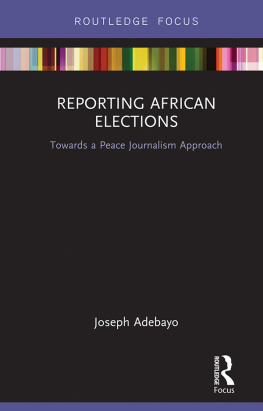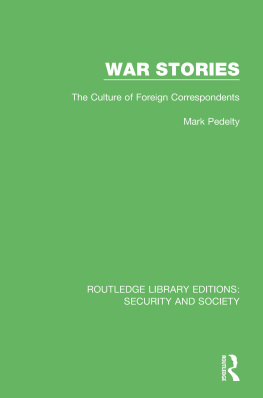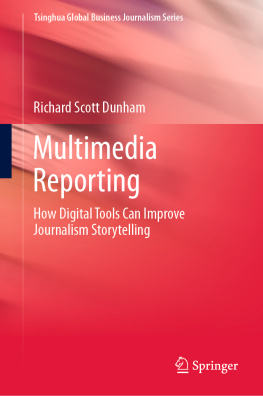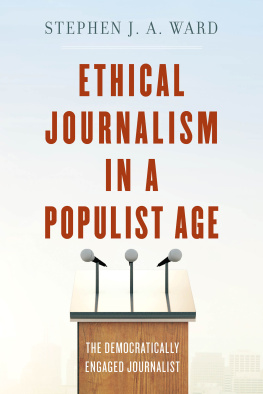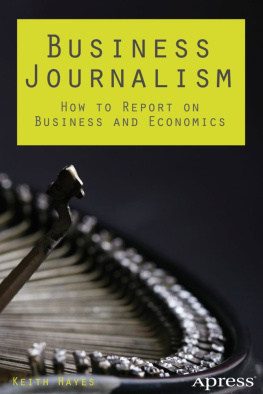
REPORTING ISLAM
Reporting Islam argues for innovative approaches to media coverage of Muslims and their faith. The book examines the ethical dilemmas faced by Western journalists when reporting on this topic and offers a range of alternative journalistic techniques that will help news media practitioners move away from dominant news values and conventions when reporting on Islam.
The book is based on an extensive review of international literature and interviews with news media editors, copy-editors, senior reporters, social media editors, in-house journalism trainers and journalism educators, conducted for the Reporting Islam Project. In addition, the use of an original model the Transformative Journalism Model provides further insight into the nature of news reports about Muslims and Islam. The findings collated here help to identify the best and worst reporting practices adopted by different news outlets, as well as the factors which have influenced them. Building on this, the authors outline a new strategy for more accurate, fair and informed reporting of stories relating to Muslims and Islam.
By combining an overview of different journalistic approaches, with real-world accounts from professionals and advice on best practice, journalists, journalism educators and students will find this book a useful guide to contemporary news coverage of Islam.
Jacqui Ewart is a former journalist and Professor at Griffith University, Australia. She researches news media representations of Muslims and disasters communication. She is the co-author and author of several books about news media coverage of Muslims and has published widely in related international journals.
Kate ODonnell is the Reporting Islam Projects Principal Research Fellow based at Griffith University, Australia. She is a career public servant turned academic whose research interests also include terrorism, policing and critical infrastructure.
First published 2018
by Routledge
2 Park Square, Milton Park, Abingdon, Oxon OX14 4RN
and by Routledge
711 Third Avenue, New York, NY 10017
Routledge is an imprint of the Taylor & Francis Group, an informa business
2018 Jacqui Ewart and Kate ODonnell
The right of Jacqui Ewart and Kate ODonnell to be identified as authors of this work has been asserted by them in accordance with sections 77 and 78 of the Copyright, Designs and Patents Act 1988.
All rights reserved. No part of this book may be reprinted or reproduced or utilised in any form or by any electronic, mechanical, or other means, now known or hereafter invented, including photocopying and recording, or in any information storage or retrieval system, without permission in writing from the publishers.
Trademark notice: Product or corporate names may be trademarks or registered trademarks, and are used only for identification and explanation without intent to infringe.
British Library Cataloguing-in-Publication Data
A catalogue record for this book is available from the British Library
Library of Congress Cataloging-in-Publication Data
A catalog record for this title has been requested
ISBN: 978-1-138-70933-1 (hbk)
ISBN: 978-1-138-70934-8 (pbk)
ISBN: 978-1-315-20094-1 (ebk)
Typeset in Bembo
by Sunrise Setting Ltd, Brixham, UK
This book is dedicated to John English, public servant, former police officer and former politician, who never stopped imagining that there might be a better way that journalists could report stories about Muslims.
CONTENTS
This book would not have been possible without the support of our families, friends, colleagues, editors, publishers, the body that funded the Reporting Islam Project, and the many people who contributed to that project and we thank them sincerely.
Jacqui Ewart thanks her partner Michael Coleman for his wise and unwavering counsel. She also thanks her co-author for sharing the journey in writing our book. She extends her thanks to Dr Kate Ames for their many Friday morning discussions and to Dr Susanna Chamberlain for the title.
Kate ODonnell thanks her partner Michael Quittenden for his unfailing support and for keeping the home fires burning while Jacqui and I focused on this book. Thanks too to John Trotter for his guidance and to Art and Wensley Santure for providing the perfect writing retreat.
The authors are indebted to Mr John English whose vision and commitment in conceiving the Reporting Islam Project never wavered. We thank the many people who contributed to the Reporting Islam Project.
Thanks to the following staff who undertook research that contributed to our book: Dr Robert Carr, Ms Virginia Jones, Mr Guy Healy, Ms Jillian Beard; Ms Virginia Leighton-Jackson and Mr Murray Cornish. Thanks to Mr Mark Lawson for the graphic design on our Transformative Journalism Model.
We acknowledge and thank the reviewers for their comments on the proposed book manuscript and chapters, they have made it a stronger book.
We recognise the contribution of Professor Mark Pearson who co-led the Reporting Islam Project from mid-2015 to the end of 2016.
Finally, to the news organisations and universities that provided us with access to train journalists, journalism educators and students, we acknowledge the difference they made to our book.
Introduction
It is surprising given the significant body of research that exists into news media coverage of Muslims, that researchers have largely failed to focus on solutions or treatments that might address the problematic nature of much of this coverage. Since 9/11, there has been an increase in the interest of the research community in the representation of Muslims in news media, although that is not to say that this was not a subject of research prior to those events. However, much of this work has focused on negative representations in mainstream news media. What has been largely missing from the academic conversation about the images and stories that have largely negatively represented Muslims in Western news media, are ways of transforming journalism about Muslims and their faith. There have also been very few studies that have focused on examples of best practice in news media coverage of stories about or involving Muslims.
The need for well-informed reporting by Western news media is reinforced by the fact that Islam is the worlds fastest-growing religion (Pew Research Center, 2015: 5). Based on current growth trends worldwide, the Muslim population is predicted to be 2.76 billion by 2050 and by 2070 Islam is predicted to be the religion with the worlds largest number of adherents (Pew Research Center, 2015: 14). Muslims come from a diverse range of countries, not just those that could be said to be Muslim-majority countries, and that poses significant challenges for those reporting on the extraordinarily geographical and cultural diversity that characterises the worlds Muslim populations in the twenty-first century.
Our books foundations
Recent events, including the election of Donald Trump as president of the United States of America (US) and his remarks that a register of Muslims would be good management (Hillyard, 2015), followed by his attempt to ban entry to the US of people travelling from seven Muslim-majority countries (White House, 2017), reinforce the need for more informed news media coverage of such stories. These developments combined with the history of poor news media coverage of stories about Muslims in some Western news media reinforce the need for this book. This book builds on the international body of research and draws in part on a major project led by one of the authors and contributed to by the co-author. That project, called the Reporting Islam Project, was led by the first author Jacqui Ewart through its four stages (20152018) and from July 2014 to December 2016 it was co-led with Professor Mark Pearson. It was funded by the Australian government. Our book culminates with an explanation of how a series of research-underpinned approaches to and resources for best practice for journalists reporting on stories about Muslims were developed, trialed, tested and refined as part of the aforementioned project. Those resources were developed with the primary aim of assisting journalists to be better informed when reporting on Islam and Muslims. In addition, this book provides a pathway to achieving best practice through reflections on examples of international news stories and an editorial that prima facie exhibit good practice, but that also demonstrate more subtle problems. We also identify how these stories could be transformed through attention to specific journalistic practices. While we believe that journalists need to be better informed when reporting on stories about or involving Muslims, we are not suggesting they need to be experts in the religion of Islam, but rather that they return to the basics of good journalism. In this respect the focus should be on fact checking, balance and ensuring the voices of those affected by an issue are heard in news stories.


